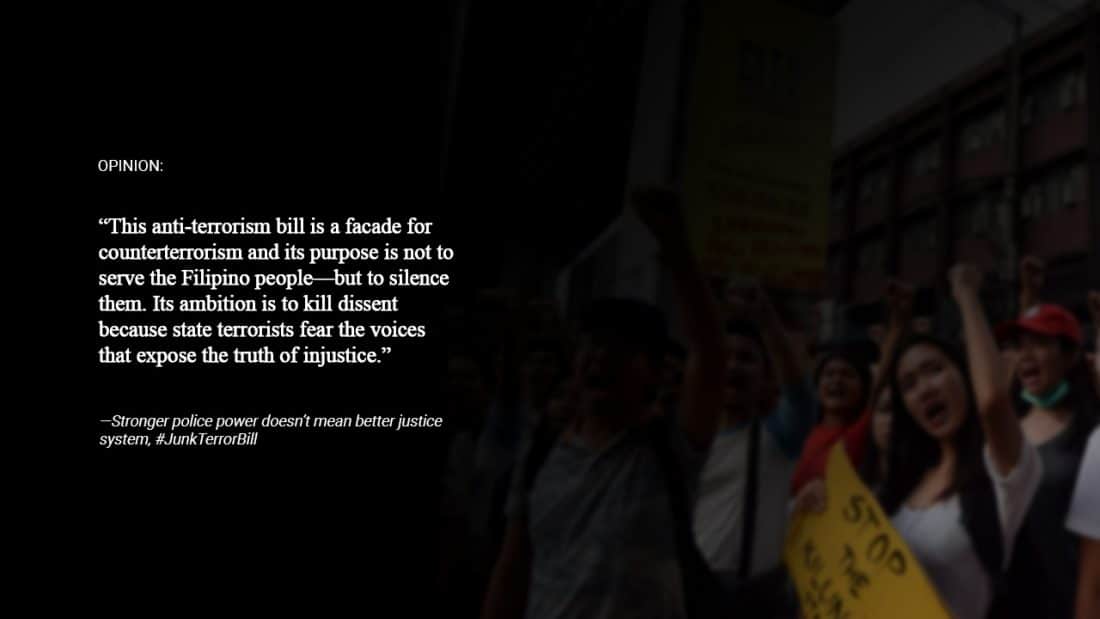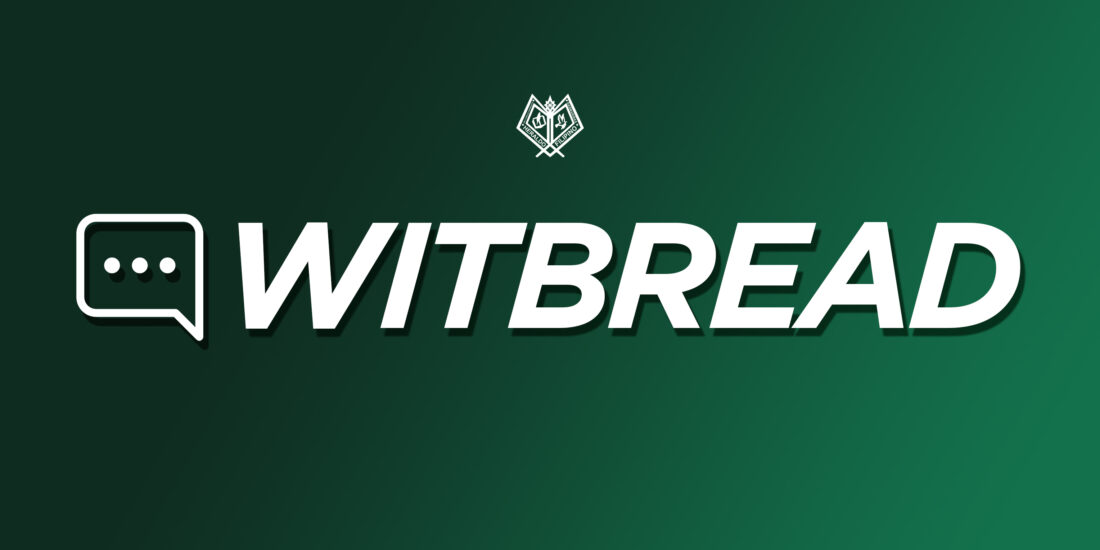Stronger police power doesn’t mean better justice system
The delicate matters of the state hang on the decisions of elected officials and yet the essence of the republic lies in the people governed. The railroading of the anti-terrorism bill, which threatens the state’s democracy, invoked the rage of Filipinos who saw its blatant disregard for their human rights and constitution.
It is safe to say that the Filipino people have identified the flaws of our previous normal lives within monthslong of quarantine. After a series of alarming attacks on our democracy—such as the ABS-CBN shutdown, the mass arrests of starving innocents, and the increasing death toll of known government critics—here comes the push for Senate Bill 1083, otherwise known as “Anti-Terrorism Act of 2020.”
As a repeal to the Human Security Act of 2007, ATB aims to provide a “stronger legal backbone” that will support the country’s actions against terrorism. With its vague definition of what qualifies as terrorism and who qualifies as a terrorist, no one is safe for abuse of power. To further complete its draconian imagery, some described this new bill as “more teeth” for HSA.
The anti-terrorism bill’s definition of terrorism implies that anyone and everyone can be a terrorist. It does not only encourage terror-tagging but it also easily endangers normal citizens unnecessarily. According to the bill itself, anyone who will propose, incite, conspire, and participate in the planning, training, preparation, and facilitation of a terrorist act, or supports and recruits for the terrorists is punishable by 12 years to a life sentence of imprisonment without parole and bail.
If this bill becomes law, it will justify warrantless arrests, 14 days of detention (extendable by 10 more days) even without concrete cases, 60 to 90 days of surveillance unbeknownst to the “suspected” terrorist (wiretapping, monitoring of social media accounts and electronic devices, etc.), and the bestowment of absolute power to the AFP-PNP (under the Anti-Terrorism Council and the Executive branch) in what constitutes as the enemy.
Here is where the vagueness becomes dangerous for the populace. ATB’s unconstitutionality infringes on the right to due process, right to privacy of communication and correspondence, right of the people to assemble and petition the government for a redress of grievances, the right of the people to be secure in their persons, houses, papers, and effects against warrantless and unreasonable arrests, and the due delegation of powers.
In 2019, human rights group KARAPATAN confirmed that there are estimatedly a thousand cases of petty crimes filed on activists, which resulted in 604 of them jailed. Also, some journalists from Cagayan de Oro who supported ABS-CBN’s franchise renewal were branded as “communist-terrorists.” It is no secret that critics are especially susceptible to be accused of “conspiring to commit terrorism” with this bill. The lightening of penalties for law enforcers along with the removal of the P500,000 reparation per detention day for anyone wrongfully accused of terrorism gives way to stronger police power but weaker safeguarding rights.
History taught us to be vigilant. We know better than letting this terror bill mirror the horrors of the Marcos dictatorship.
This terror bill is a facade for counterterrorism and its purpose is not to serve the Filipino people—but to silence them. Its ambition is to kill dissent because state terrorists fear the voices that expose the truth of injustice.
The effectiveness of this bill will create a life of its own, which will further erode our democracy when abused by authorities. It might just be the harbinger of countless human rights violations, the likes that the EDSA People Power Revolution fought against, and maybe even worse.
As a notable takeaway from Ynot vs IAP goes, “the strength of democracy lies not in the rights it guarantees but in the courage of the people to invoke them whenever they are ignored or violated.”
Therefore, we, as Filipinos, shall defend ourselves from its oppressors, wielding our rights as protection against weaponized bills that may rain hell on dissenters. In the name of democracy, we shall demand that the terror bill be declared unconstitutional and rendered void.
Resist as one.




